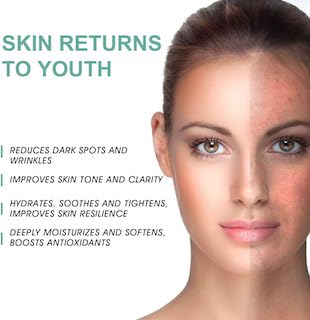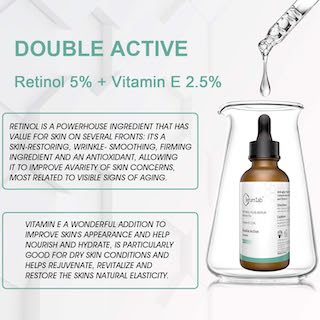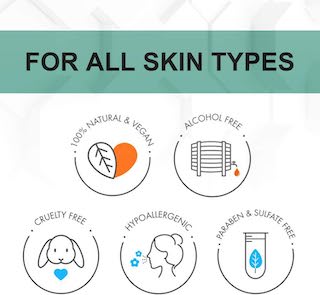Welcome to the world of retinol, a potent ingredient that can transform your skin care routine. Whether you’re dealing with acne, wrinkles, or uneven skin tone, incorporating retinol into your skincare regimen can help address these concerns effectively. In this article, we will explore the basics of retinol, its benefits, how to choose the best retinol serum for your skin type, and the proper way to incorporate it into your routine.
- What is Retinol and How Does It Work?
- Choosing the Best Retinol Serum for Your Skin
- How to Incorporate Retinol into Your Skincare Routine
- Common Concerns and Side Effects of Retinol
- Expert Advice: Dermatologists' Recommendations
- Conclusion
- Q: What is retinol?
- Q: How does retinol work?
- Q: Can retinol cause irritation?
- Q: Is retinol suitable for all skin types?
- Q: What are the benefits of using retinol?
- Q: How often should I use retinol?
- Q: Can retinol be used around the eye area?
- Q: Can retinol be used with other skincare ingredients?
- Q: Are there any alternatives to retinol?
- Q: Does retinol make the skin more sensitive to sunlight?
What is Retinol and How Does It Work?

Understanding the Basics
Retinol is a derivative of vitamin A and is one of the most widely recognized ingredients in the skincare industry. It works by penetrating the skin and stimulating the production of collagen, which is essential for maintaining skin elasticity and reducing the appearance of fine lines and wrinkles.
How Does Retinol Work on the Skin?
Retinol works by increasing cell turnover, which means it helps shed dead skin cells faster and promotes the growth of new, healthy skin cells. This process leads to smoother skin texture, improved skin tone, and a reduction in the visibility of skin imperfections.
What Are the Benefits of Using Retinol?
Using a retinol serum offers a wide range of benefits. Firstly, it helps reduce the appearance of fine lines and wrinkles, making your skin look more youthful and radiant. Additionally, retinol can treat acne by unclogging pores and reducing inflammation. It also promotes an even skin tone, reduces the appearance of hyperpigmentation, and can help improve the skin’s overall texture.
Choosing the Best Retinol Serum for Your Skin
Determining Your Skin Type
Before selecting a retinol product, it’s important to determine your skin type. This will help you choose a serum that is best suited for your specific needs. Whether you have oily, dry, or sensitive skin, there is a retinol serum available that can address your specific concerns.
Finding the Right Concentration of Retinol
When it comes to retinol, the concentration matters. Start with a lower concentration, such as 0.1%, and gradually increase the strength as your skin adjusts. The goal is to find a balance where you experience the benefits of retinol without causing excessive irritation or dryness.
Considering Other Ingredients in the Serum
Keep in mind that a good retinol serum should not only contain retinol but also other beneficial ingredients for your skin. Look for serums that include ingredients like hyaluronic acid, which helps hydrate and plump the skin, or salicylic acid, which can help with acne-prone skin.
How to Incorporate Retinol into Your Skincare Routine

Start Slowly and Gradually Increase Frequency
When first introducing retinol into your skincare routine, it’s essential to start slowly. Begin by applying the serum every other night to allow your skin to adjust. As your skin becomes more tolerant, you can gradually increase the frequency of application.
Applying Retinol to Sensitive Skin
For individuals with sensitive skin, it’s important to take extra precautions when using retinol. Consider using a retinol serum specifically formulated for sensitive skin, and always do a patch test before applying it to your face. If your skin experiences excessive irritation, it’s best to consult with a dermatologist.
Tips for Avoiding Irritation and Dryness
To minimize the risk of irritation and dryness, apply a moisturizer before or after applying retinol. This will help lock in moisture and create a protective barrier on your skin. Additionally, avoid combining retinol with other active ingredients, such as glycolic acid, as this may increase the likelihood of irritation.
Common Concerns and Side Effects of Retinol

Possible Side Effects of Retinol
While retinol is generally safe for most individuals, some may experience side effects. These can include redness, dryness, peeling, and increased sensitivity to the sun. It’s important to use retinol responsibly and follow the recommended usage guidelines to minimize any potential side effects.
Managing the Appearance of Fine Lines and Wrinkles
When it comes to the appearance of fine lines and wrinkles, retinol is a powerful ally. Regular use of retinol can help stimulate collagen production and reduce the depth of wrinkles. However, it’s important to note that results may vary depending on the individual and the severity of the skin concerns.
Alternative Options to Retinol
If you have particularly sensitive skin or are unable to tolerate retinol, there are alternative options available. One such option is using retinoids, which are derivatives of retinoic acid. These are usually available through a prescription and can provide similar benefits to retinol.
Expert Advice: Dermatologists’ Recommendations

Understanding the Difference between Retinol and Retinoids
It’s important to understand the distinction between retinol and retinoids. Retinol is a type of retinoid, but not all retinoids are retinol. Retinol is an over-the-counter form of retinoid that is readily available in skincare products. Other forms of retinoids, such as retinoic acid, are more potent and often require a prescription from a dermatologist.
Combining Retinol with Other Active Ingredients
When using retinol, it can be beneficial to combine it with other active ingredients to enhance its effects. For example, using a retinol serum that also contains hyaluronic acid can provide additional hydration and plumping benefits. However, it’s important to be cautious and introduce new products gradually to avoid overwhelming the skin.
Skin Care Tips for Mature Skin
Mature skin requires special attention, and retinol can be an excellent addition to an anti-aging skincare routine. Alongside using retinol, it’s important to incorporate antioxidants and sun protection into your routine. Antioxidants can help neutralize free radicals and protect the skin from environmental damage, while sun protection can prevent further signs of aging.
Conclusion
In conclusion, the inclusion of retinol in your daily skincare routine offers a multitude of benefits, from reducing the appearance of wrinkles and fine lines to improving skin texture and tone. By stimulating collagen production, promoting cell turnover, and combating sun damage and acne, retinol can help you achieve a healthier, more youthful complexion. With consistent and cautious use, retinol can be a valuable addition to your skincare arsenal, supporting your journey towards vibrant and glowing skin.
I highly recommend the 3erum1ab Retinol Serum due to its excellent quality and affordable price point. Otherwise check out Amazon for great deals on retinol skin care Here.
We also have and article about the more gentle bakuchiol serum or the discoloration serum which is two very good alternative skincare products.
Remember to check out my other Beauty articles Here.
Q: What is retinol?
A: Retinol is a form of vitamin A that is commonly used in skincare products to address various skin concerns, such as wrinkles, fine lines, and acne.
Q: How does retinol work?
A: Retinol works by increasing skin cell turnover, which helps to accelerate the process of shedding dead skin cells and generating new skin cells. This can improve the appearance of skin, making it look smoother and more youthful.
Q: Can retinol cause irritation?
A: Yes, retinol can cause irritation, especially if you have sensitive skin or if you are new to retinol use. It’s important to start with a lower concentration and gradually work your way up to higher strengths to avoid potential irritation.
Q: Is retinol suitable for all skin types?
A: Retinol is generally suitable for all skin types, but it’s best to use it with caution if you have dry or sensitive skin. If you have any concerns, it’s always a good idea to consult with a dermatologist before incorporating retinol into your skincare routine.
Q: What are the benefits of using retinol?
A: Retinol has several benefits for the skin, including reducing the appearance of wrinkles and fine lines, improving skin texture and tone, treating acne, and promoting overall skin health.
Q: How often should I use retinol?
A: The frequency of retinol use depends on your skin condition and tolerance. It’s generally recommended to start with a few times a week and gradually increase to daily use as your skin gets used to it. However, it’s important to listen to your skin and adjust the frequency accordingly.
Q: Can retinol be used around the eye area?
A: Yes, retinol can be used around the eye area, but it’s important to use a gentle formulation specifically designed for this sensitive area. Avoid applying retinol too close to the lash line to prevent any potential irritation.
Q: Can retinol be used with other skincare ingredients?
A: Yes, retinol can be used with other skincare ingredients. However, it’s important to avoid using it with ingredients like glycolic acid or other exfoliating acids, as this combination can increase the risk of irritation. It’s best to consult with a dermatologist or skincare professional to determine the best combination of products for your skin.
Q: Are there any alternatives to retinol?
A: Yes, there are alternatives to retinol, such as granactive retinoid or retinol esters, which are milder and may be better suited for sensitive skin. Over-the-counter retinol alternatives can also be effective in addressing skin aging concerns.
Q: Does retinol make the skin more sensitive to sunlight?
A: Yes, retinol can make the skin more sensitive to sunlight. It’s important to use sunscreen daily and avoid excessive sun exposure when using retinol to protect the skin from potential damage.
























Comments 1